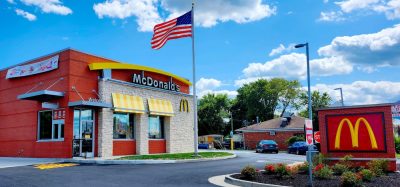Inquest reports fatal allergic reaction to takeaway pizza
- Like
- Digg
- Del
- Tumblr
- VKontakte
- Buffer
- Love This
- Odnoklassniki
- Meneame
- Blogger
- Amazon
- Yahoo Mail
- Gmail
- AOL
- Newsvine
- HackerNews
- Evernote
- MySpace
- Mail.ru
- Viadeo
- Line
- Comments
- Yummly
- SMS
- Viber
- Telegram
- Subscribe
- Skype
- Facebook Messenger
- Kakao
- LiveJournal
- Yammer
- Edgar
- Fintel
- Mix
- Instapaper
- Copy Link
Posted: 17 January 2024 | | No comments yet
According to reports, an inquest has heard that British man James Atkinson passed away following an allergic reaction to nuts “one hour after eating a slice of takeaway pizza”.


Latest reports have shared that an inquest has heard that James Atkinson, a 23-year-old man from Leeds, suffered a fatal allergic reaction after eating a slice of takeaway pizza.
Updates from the BBC noted that Atkinson lived with a peanut allergy and, after eating food ordered from Dadyal, a Newcastle restaurant, he passed away the same day on 10 July 2020.
Reports find that a Home Office pathologist explained to the hearing that Atkinson “died from anaphylaxis as a result of peanut ingestion”.
According to the BBC, in July of 2020 the 23 year old ordered a meal online using the popular food delivery app Deliveroo. Included in the order was “a chicken tikka masala pizza, chips and Indian dishes”.
New Food understands that the inquest was informed, prior to consuming the delivered meal, Atkinson researched “likely ingredients in certain foods” and, upon eating the food, Atkinson was reported to have “eaten some chips and less than one slice of pizza before he realised something was wrong as he became rapidly unwell.”
In fact, the BBC said that Dr Jennifer Bolton, Home Office Pathologist, noted the 23 year old was, when the ambulance team reached his location, left “gasping for air”.
The Independent reports that Atkinson “died around an hour later in hospital”. The inquest was told that toxicology tests revealed that the young man “had no alcohol or other drugs in his system at the time and so his decision-making ability was not impaired”, according to the BBC.
In relation to this case, The Independent has also shared that the inquest at Newcastle Civic Centre ruled that “the cause of death was anaphylaxis caused by eating peanuts in the curry” found on the pizza.
Sharing her thoughts on this case, Sarah Knight, Founder of The Allergy Team, said: “Although fatal anaphylaxis is rare, what happened to James Atkinson speaks to the very worst fears of families living with food allergy and our thoughts are with his loved ones. We support families to become more confident living with food allergies, but eating out, ordering food and socialising can sometimes feel like a lottery.
“Many of the carers we speak to have never enjoyed a meal out with their children because it feels too risky. We need to be able to trust food businesses to provide safe food every single time, with allergens clearly declared, and to train their staff to the highest standards so everyone understands the potential consequences of getting this wrong.”
Also speaking to New Food on the matter, Liljia Polo-Richards, Director and Founder of Allergy Companions, explained that Atkinson’s death is “sadly another reminder that food allergies are a serious medical condition.”
Why food allergies should be seen as a business opportunity, not a threat
“The findings from the inquest confirmed that the food ordered by James contained peanuts, an allergen he was severely allergic to. Unfortunately, this also represents another case where allergy patients do not mention their dietary needs when ordering food. James was also not carrying his emergency medication when he suffered this allergic reaction,” continued Polo-Richards.
She went on to emphasise that she believes food venues “cannot prepare safe orders without prior knowledge of someone’s allergies. In this case, the owner of the Dadyal Restaurant in Newcastle confirmed, during the inquest, that if he had known about James’s allergies he would have refused to serve him.”
“Whilst an allergen menu might have stopped James from ordering that particular dish, the food ordered from Dadyal would still have been unsafe due to the high risk of cross-contamination in their kitchen. Over the last decade, we have witnessed similar cases, where allergic diners have ordered or bought food that was not safe for them and did not declare their allergies. In some instances, individuals were not prescribed or were not carrying life-saving medication.”
Polo-Richards believes that the food sector should “take this opportunity to understand what more can be done to raise awareness of the seriousness that all allergies can carry and why communication between consumers and hospitality is so important.”
Speaking to New Food on the matter, a spokesperson from Deliveroo said: “Throughout this process our thoughts have been with James Atkinson’s family and friends. Deliveroo is committed to providing the tools for restaurants to make allergen information available to consumers on our platform and will continue to work with partners to further protect our users.”
Related topics
Allergens, Food Safety, Health & Nutrition, Regulation & Legislation, retail, The consumer, Trade & Economy









